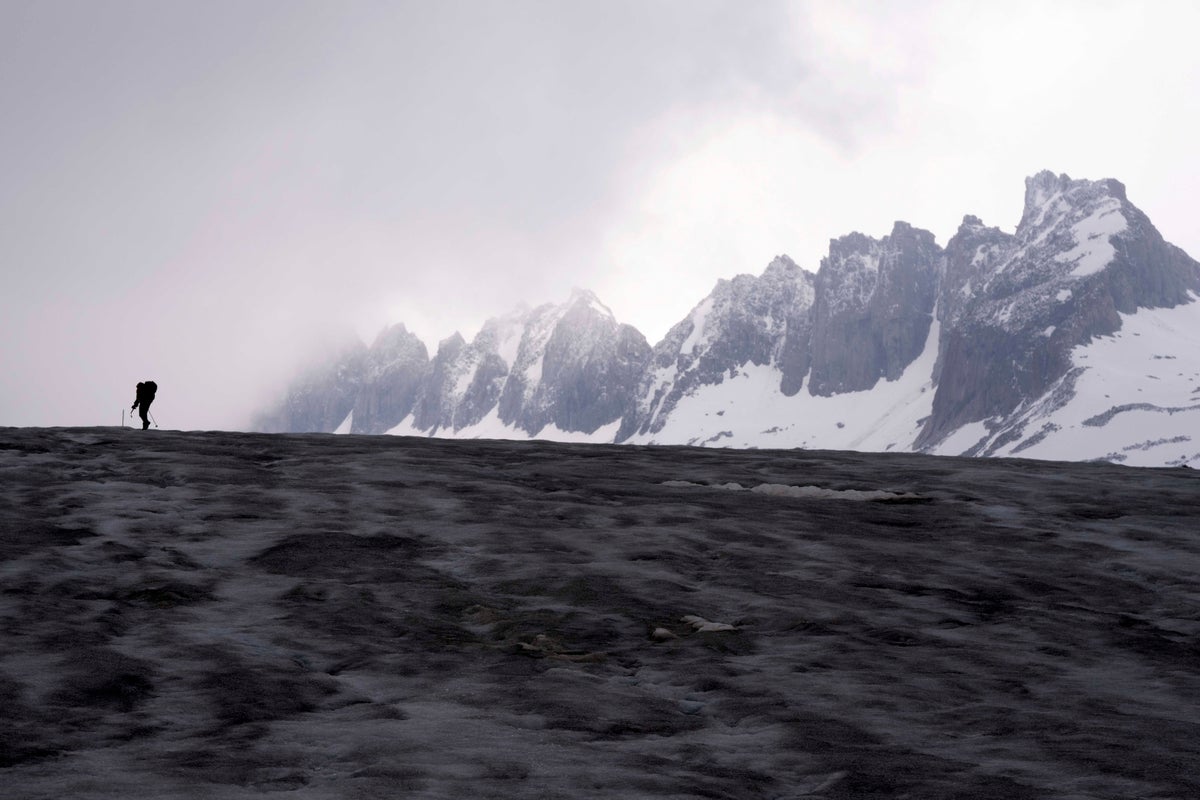
It is a sight in decline across Switzerland: glaciers sprawled across the Alps, formed over centuries of snow and sediment packed into a crystalline mass.
With the glaciers now dwindling at an alarming rate because of human-caused climate change, team members of the Swiss Federal Institute of Technology monitor what's left in an attempt to slow their demise.
Glaciologist Matthias Huss and his team use measuring and monitoring equipment to keep tabs on how much they've shrunk and desperately try to maintain their mass.
At the Rhone Glacier, one of the biggest in the Alps, workers prepare huge sheets to cover the ice like blankets in a bid to shield it from the warmth of the summer months.
Some stretches of mountain once covered with the grayish blue of glaciers are now mostly shrouded by white covers. Chunks of ice floating in a nearby lake are also conserved. The sheets are effective locally but are just a small-scale solution.
Alpine glaciers are still expected to vanish by the end of the century.
In the short term, glacier melt has meant more water, filling Alpine lakes and the flows for many of Europe's major rivers, giving some relief to those that rely on them amid Europe’s drought woes.
But there's also fear that the melting is causing glacier chunks to detach, sparking deadly avalanches.
In the longer term, the glaciers' disappearance would only add to the continent's water concerns.
Swiss glaciers experienced record melting last year, losing more than 6% of their volume and alarming scientists who say a loss of 2% would once have been considered extreme.
At the Aletsch glacier, the longest and deepest in the Alps and popular with tourists, small blue pools form where the snow has melted from the June heat. Water covers the tunnel that leads hikers to it.
But for those who travel to Aletsch, there's still enough of the glacier — for now — to make the journey worthwhile.







